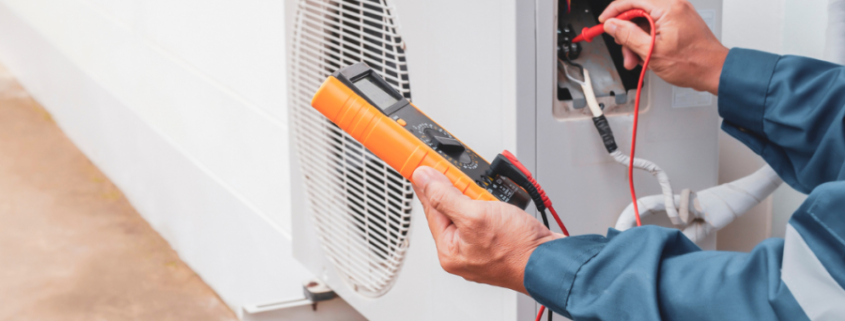Your HVAC system plays a crucial role in maintaining the comfort and energy efficiency of your home year-round. Whether you’re a seasoned homeowner or just moving into your first house, understanding the basics of HVAC maintenance can save you money, extend the life of your system, and improve indoor air quality.
Here are the top 10 HVAC tips every homeowner must know for 2025 to ensure a well-functioning heating and cooling system.
1. Plan for Regular Maintenance
One of the most important HVAC tips for homeowners is to schedule professional maintenance at least twice a year. Spring and fall are ideal times to check your system before peak heating or cooling seasons. Regular maintenance by HVAC experts ensures your system operates efficiently and helps identify potential issues before they become costly repairs.
Key Benefits:
- Prolongs the lifespan of your HVAC system.
- Improves energy efficiency.
- Reduces the risk of unexpected breakdowns.
2. Change Air Filters Regularly
Your HVAC system must work harder when airflow is blocked by clogged air filters. Depending on usage and whether you have allergies or pets, change your air filters every one to three months. In addition to improving air quality, clean filters also increase system performance.
Pro Tip: Consider investing in high-quality filters with a higher MERV rating for better filtration.
3. Seal Air Leaks
Leaky ducts and improperly insulated windows or doors can result in significant power loss, which can increase utility costs. Inspect your home for drafts and seal any leaks with caulk or weather-stripping. This easy step guarantees that your HVAC system isn’t working overtime to preserve the proper temperature.
Common Problem Areas:
- Around windows and doors.
- Attic and basement openings.
- HVAC ducts.
4. Upgrade to a Smart Thermostat
For homes that are trying to increase energy use, connected thermostats are trendy. These devices allow you to program and remotely control your HVAC system, ensuring optimal temperature settings based on your schedule.
Advantages:
- Saves money on energy bills.
- Provides real-time energy usage insights.
- Enhances comfort with personalized settings.
5. Clean Around Outdoor Units
Your HVAC’s outdoor unit can collect debris, such as leaves, dirt, and grass clippings, which obstruct airflow. Periodically clean the area around your unit and keep a 2-foot clearance for optimal performance.
Steps to Follow:
- Turn off the power before cleaning.
- To get rid of debris, use a Hose or a gentle brush.
- Check for signs of damage or wear.
6. Consider a New HVAC Installation if Needed
If your HVAC system is over 10-15 years old or requires frequent repairs, it might be time for a new HVAC installation. Modern systems are far more energy-efficient, helping you save on utility bills while reducing your carbon footprint.
Signs You Need an Upgrade:
- Rising energy costs despite regular maintenance.
- Uneven heating or cooling.
- Frequent breakdowns or costly HVAC repair services.
7. Optimize Ventilation for Better Air Quality
Proper ventilation is vital for maintaining indoor air quality and preventing the buildup of allergens, mold, and other pollutants. Ensure vents are unobstructed and consider using exhaust fans in high-moisture areas like bathrooms and kitchens.
Additional Tips:
- Use a dehumidifier in damp areas.
- Add houseplants to naturally purify the air.
8. Don’t Ignore Strange Noises or Smells
Unusual noises or smells coming from your HVAC system are often early warning signs of a problem. For example, hammering sounds may suggest loose parts, while a burning smell may indicate an electrical problem.
Action Steps:
- Turn off the system and contact professional HVAC services immediately.
- Avoid attempting DIY fixes for complex issues.
9. Use Zoned Heating and Cooling
Zoned HVAC systems allow you to control the temperature of individual rooms or zones in your home. This is especially useful for large homes with varying heating and cooling needs.
Benefits:
- Increases comfort and energy efficiency.
- Reduces wear and tear on your HVAC system.
- Customizes temperature settings for different zones.
10. Hire Professional HVAC Experts
When it comes to complex HVAC issues, always rely on professional HVAC experts. From installation to heating services for your home and business, certified professionals ensure the job is done right, keeping your system in top condition.
Why Choose Professionals?
- Access to specialized tools and expertise.
- Compliance with local regulations and safety standards.
- Guaranteed workmanship.
HVAC Maintenance Tips: Keep Your System Running Smoothly
Proper HVAC maintenance is essential for ensuring your heating and cooling system operates efficiently, lasts longer, and provides consistent comfort. Regular upkeep not only saves money on energy bills but also prevents costly repairs.
Whether you’re a homeowner or a business owner, these HVAC maintenance tips will help you keep your system in top shape.
- Clean Around Outdoor Units
- Inspect and Seal Ductwork
- Test Your Thermostat
- Check and Clean Drain Lines
- Inspect Electrical Connections
- Monitor Refrigerant Levels
- Keep Vents Open and Unobstructed
- Be Proactive About Repairs
How to Make Your HVAC Work Better
Enhancing your HVAC system’s performance starts with regular maintenance and smart usage. Change air filters every 1-3 months to maintain optimal airflow and energy efficiency. Schedule biannual professional check-ups to ensure your system operates smoothly.
If you notice leaks, seal them with caulk or weather stripping to prevent energy loss. For more precise temperature control, upgrade to a smart thermostat, which can optimize your HVAC system’s efficiency and save energy.
Another important step is to check your ductwork for leaks and damage. Ducts that are properly sealed promote airflow and put less stress on your system.
Additionally, keep the area around your outdoor unit clear of debris and ensure vents inside your home are unobstructed.
If your system is outdated, consider investing in a new HVAC installation. Modern systems are more energy-efficient, feature advanced technology like variable-speed motors, and can lower operating costs over time. During HVAC installation, ensure proper sizing and professional setup for the best results.
Tips to Improve HVAC Performance
Use Ceiling Fans
Ceiling fans can circulate air more effectively, allowing your HVAC system to work less. In summer, set fans to rotate counterclockwise to push cool air down, and reverse the direction in winter.
Reduce Heat Gain
Minimize heat entering your home by closing blinds or curtains during hot days and sealing any gaps around windows. This reduces the need for cooling.
- Use energy-efficient windows or window film to block UV rays.
Invest in an Air Purifier
Air purifiers help reduce dust and allergens that can clog your system. A cleaner system works more efficiently and improves indoor air quality.
Improve Insulation
When your walls, attic and floors are properly insulated, heat transfer is reduced, which reduces the stress on your HVAC system.
- Install high-quality insulation in your home’s attic and crawl spaces.
- Seal any gaps around vents and pipes.
How Much Does It Cost To Have A HVAC Person Come To Your House?
The cost of having an HVAC technician visit your home can vary based on several factors, including your location, the time of the visit, and the specific type of service required. On average, a service call fee typically ranges between $75 and $200, but there are several aspects to consider that can influence the overall cost:
- Service Call Fee
- Basic Service Call: This fee covers the technician’s travel to your home and an initial diagnostic inspection of your HVAC system. It typically ranges between $75 and $150.
- Extended Diagnostics: If the technician needs additional time to diagnose a more complex issue, or if specialized tools are required, the charge may be higher, often between $150 and $200.
- Time of Visit
- Regular Hours: Service calls during standard business hours (Monday through Friday, 8 AM to 5 PM) generally come at a standard rate.
- After-Hours Service: If you need a technician after business hours, on weekends, or during holidays, many HVAC companies apply an emergency service surcharge. This can add $50 to $100 or more to the base service fee.
- Location and Travel Distance
- Local vs. Remote Areas: Service rates can vary depending on where you live. For example, if you are located in a more rural or remote area, the technician may charge a higher fee to cover the cost of travel time.
- Geographic Location: The cost of HVAC services can vary significantly by region due to differences in labor rates, cost of living, and market demand.
- Type of Service
- Maintenance vs. Repairs: A simple maintenance check or filter replacement might cost less than a comprehensive diagnostic or repair. For instance:
- Routine inspections or maintenance (e.g., system tune-up) can cost between $100 and $200.
- More extensive repairs, such as fixing a faulty compressor or replacing a component, can lead to higher costs, sometimes reaching $300 or more depending on the complexity of the job.
Final Thoughts:
Taking a proactive approach to HVAC maintenance is key to ensuring your system runs smoothly year-round. Simple tasks like changing air filters regularly, scheduling biannual maintenance, and sealing air leaks can make a significant difference in both performance and energy efficiency. By addressing small issues before they become costly problems, homeowners can enjoy optimal comfort while avoiding expensive repairs. These steps not only extend the life of your HVAC system but also contribute to a healthier living environment.
At Sami James HVAC, we are committed to helping homeowners maintain their systems with expert care and precision. Our team is always ready to provide quality solutions, whether it’s a routine check-up, an upgrade, or an urgent repair.
Trust us to keep your home comfortable, energy-efficient, and safe with professional HVAC services you can count on.
Reach out to us today and experience the difference of working with a team that truly values your comfort.

